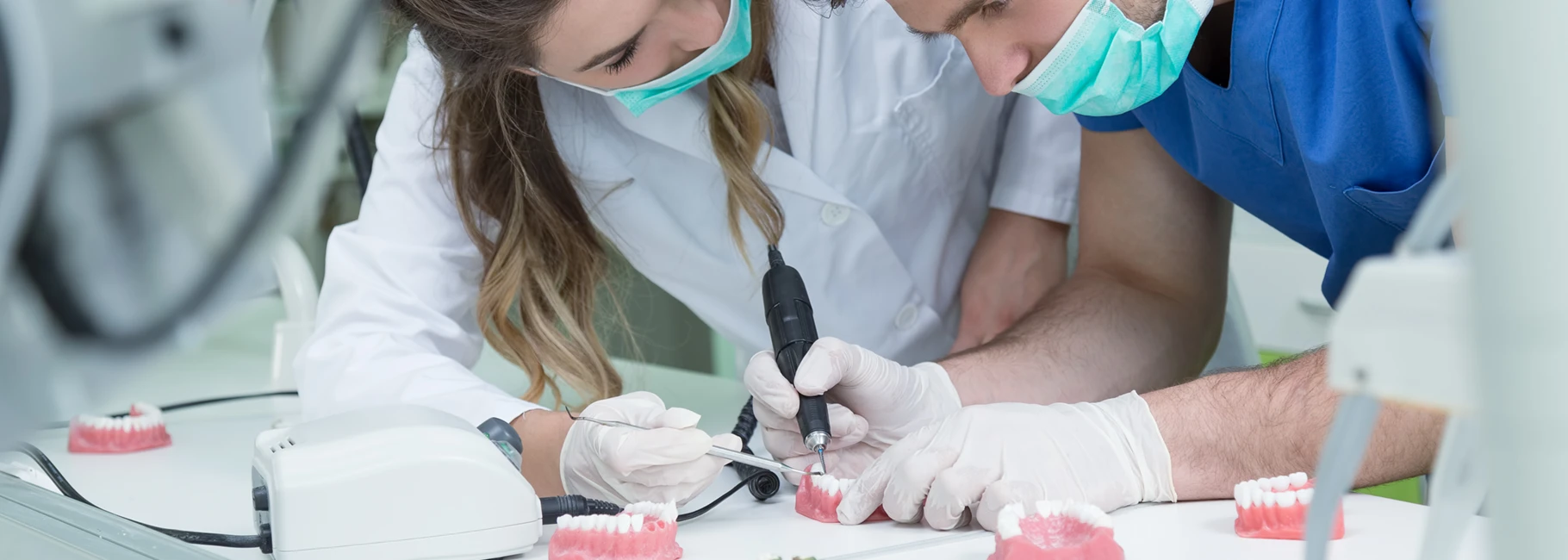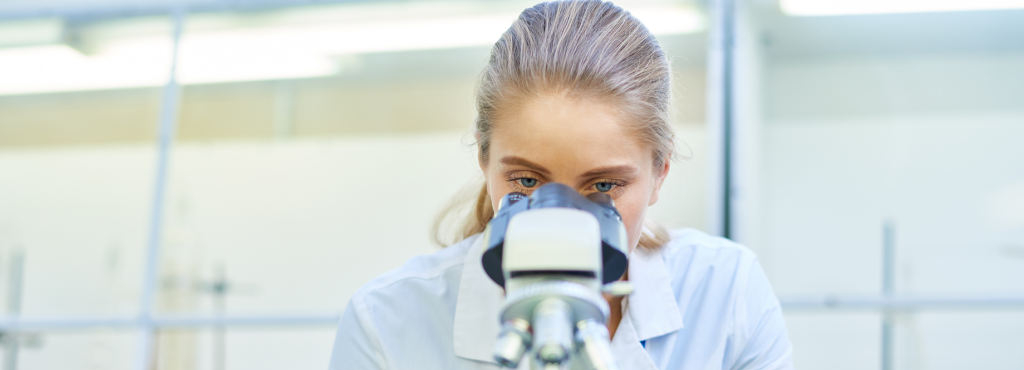By Rod, IvyWise College Admissions Counselor
Direct dental programs allow high school students to apply to and, if successful, be admitted into an undergraduate institution and a partner dental school simultaneously. These programs are referred to by several names, such as:
- Accelerated dental
- B.S./DDS or B.A./DDS
- B.S./DMD or B.A./DMD
Regardless of the nomenclature, direct dentistry programs typically allow students to complete an undergrad and dentistry degree at the same institution, although in some cases these two degrees must be completed at two separate but partner institutions. Direct dental programs can range in duration from five to eight years — however, the more accelerated the program, the more intensive and condensed the undergraduate portion usually is.
Understanding Direct Dental Programs
Direct entry dental programs can vary in intensity and the time it takes to complete, so it’s important to understand your options.
What Is a B.S./DDS Program?
A B.S./DDS program allows students to earn both a Bachelor of Science (B.S.) and a Doctor of Dental Surgery (DDS) degree. These programs are designed for students who are certain about pursuing a career in dentistry and want a streamlined route to achieve their goals. Most students can complete this type of program in seven or eight years.
Similarly, students can enroll in a combined program to earn a Bachelor of Arts (B.A.) and DDS. Other options for direct dental programs include a combined bachelor’s — either a B.A. or a B.S. — with a Doctor of Dental Medicine (DMD) degree.
What Is an Accelerated Dental Program?
Dental school accelerated programs allow students to complete their dental education in a shorter period than traditional programs — typically five to six years. These programs typically compress the same amount of coursework and clinical experiences into a shorter timeframe, enabling students to graduate and enter the workforce sooner.
The coursework and clinical training are more condensed, which can make the program more rigorous but also more focused. Accelerated dental programs are ideal for students who are highly motivated and certain about their career in dentistry, as they require a significant commitment and a strong academic performance.
Benefits of Direct Dental Programs
The main advantage of direct admit dental programs is that students get to bypass the hassle of completing dental school applications as an undergrad. Dental school applications are long, complex, time-consuming, and stressful, so a direct dental program will allow students more time to focus on academics and leverage their undergraduate experience to the fullest. This could allow for more time spent on research, shadowing dentists, and getting involved in other extracurricular activities. Additionally, there are significant tuition savings associated with accelerated dentistry programs.
Direct dental admission does not mean that a student can simply coast through their undergrad experience. Acceptance is usually contingent upon meeting minimum GPA and DAT (Dental Admission Test) requirements. Despite the advantages of these programs, direct dental programs are not for everyone — they can limit both the majors you are allowed to pursue as well as your social experience. Applying to such programs should not be taken lightly.
How to Be Competitive for Direct Dental Admission
All direct dental programs are competitive, but selectivity varies widely from program to program. Despite less competition than direct medical programs, direct dental program applicants will still need a strong record of academic performance (including test scores, if applicable), meaningful clinical experience, substantive extracurricular activities, and stellar recommendations to be competitive.
Academic Record
An excellent academic record is the foundation of a successful application for direct dental programs after high school. Competitive applicants are usually expected to be A students and take the most rigorous courses offered, especially in math and sciences.
Programs do not always advertise this information, but there are usually minimum thresholds you must meet to be considered for admission. These thresholds can be based on your math progression, the rigor of your science course load, and your grades and test scores.
A good rule of thumb for a competitive direct dental program application is that your academic stats should comfortably rest above the 75th percentile data for the incoming class of the school whose program you are applying to. This applies to both GPA and test scores.
Clinical Experience
A commitment to dentistry and an understanding of what a dentist does are essential aspects of a direct dental program assessment. You must be able to show admissions committees that you have explored the field of dentistry enough to understand what it is you are committing to.
Shadowing dental practitioners is a great way to gain exposure and make a compelling case that your choice to apply to direct dental programs is an informed one. Research experience is usually not required to be a competitive dental applicant, but it can further differentiate you from the pack and highlight your passion for the sciences.
Extracurricular Activities
The most successful direct dental applicants are able to highlight involvement in a variety of extracurricular activities through which they can showcase sustained commitment, initiative, and leadership. When it comes to extracurriculars, quality is always better than quantity. It is better to be a part of two clubs that you are very committed to and have a high impact on, rather than be in five clubs on the periphery.
Recommendation Letters
Even if this is not required for the program to which you are applying, aim to have both a math and science teacher provide you with recommendation letters for direct dental applications. Try to strike a balance between prioritizing math and science teachers and getting recommendation letters from teachers who know you best and can comment on your qualities as a student, classmate, and community member.
Most students who enroll in a direct dental program will be significantly younger than their entry cohort in dental school. It is thus important that your recommenders can speak to your level of maturity as well as some of the qualities that would make you a successful healthcare professional. If you have shadowed a dental professional or conducted research in high school, asking your mentor to submit an additional recommendation can be invaluable.
Test-Optional Policies
Many schools have maintained test-optional admissions since the pandemic — though exceptions may exist for direct dental programs. Always check the program requirements. Even if test scores are not required, it’s in your best interest to submit them if they can further enhance your application. You can look at the most recent class profile or Common Data Set for each institution to find the SAT and ACT score ranges for enrolled students — this will help you determine if you should submit your score.
Notable Direct Dental Programs
As you compile your college list, check out these schools that offer direct dental programs.
Is Direct Dental Right for You?
Direct dental programs are a great fit for competitive students who are fully committed to a career in dentistry before they enter undergraduate studies. These programs offer students a chance to increase their focus and intensity in a less stressful environment. For students who may be interested in dentistry but are unsure if a career in the field would be the best fit, it makes more sense to follow the conventional path of a traditional undergraduate experience and apply to dental programs after their junior year. It is important to thoroughly weigh all the factors before deciding to apply to and enroll in a direct dental program.
At IvyWise, our team of former admissions directors knows how college applications are read, including in special situations like direct dental programs. If you are interested in pursuing a career in dentistry and think a direct dental program might be right for you, contact us today to see how we can help.
Direct Dental Programs FAQ
What is the #1 dental school in the U.S.?
It’s important to remember that each rankings list is based on its own methodology and criteria. However, a few dental schools that consistently rank among the top in the U.S. include the University of Michigan School of Dentistry, Harvard School of Dental Medicine, and the University of Pennsylvania School of Dental Medicine. What’s more important is that you choose the dental programs that are the best fit for your needs and goals regardless of rankings.
What is the fastest you can become a dentist?
High-achieving students who can work at an accelerated pace can finish both a bachelor’s and a dentistry degree within five years in some direct dental programs.
What is the easiest dental school to get accepted to?
While getting into dental school is always competitive, some schools have slightly higher acceptance rates and lower average admission requirements. Here are a few of the easier dental schools to get into:
- Lincoln Memorial University College of Dental Medicine
- University of Utah School of Dentistry
- University of Detroit Mercy School of Dentistry
- East Carolina University School of Dental Medicine
- University of Mississippi School of Dentistry
Keep in mind that “easier” is relative, and all dental schools require strong academic performance, good DAT scores, and relevant experience.
Which Ivy League schools have a dental school?
Three Ivies have dental schools: Harvard, Columbia, and Penn.
Does acceptance into a B.S./DDS program guarantee your child a spot in dental school?
Acceptance into a B.S./DDS program does not always guarantee a spot in dental school. While these programs provide a streamlined path from undergraduate studies to dental school, students typically must meet certain academic and performance criteria during their undergraduate years to secure their place in the dental program.



